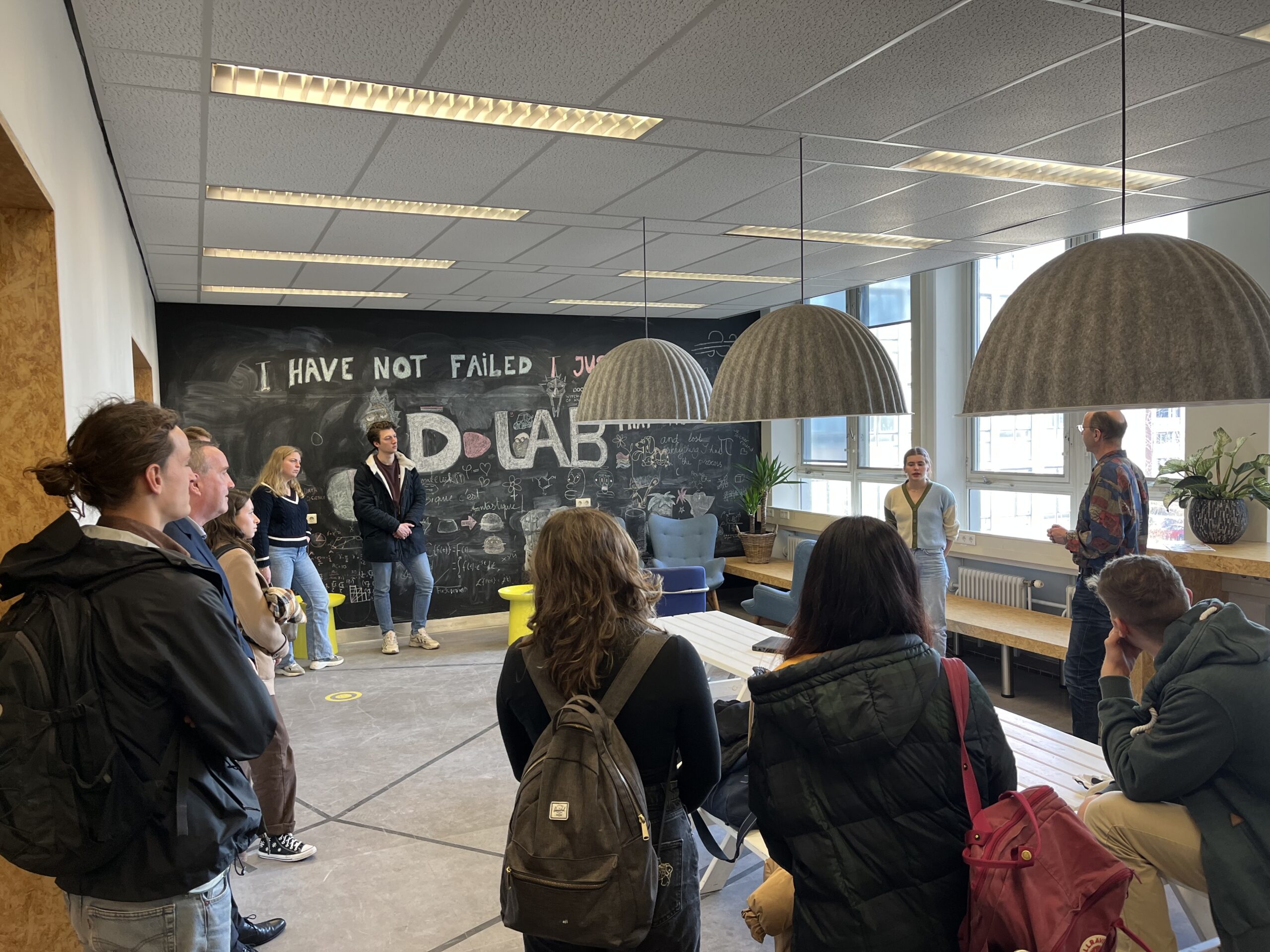Enno Masurel
In February – March of this year the course ‘Entrepreneurship in Renewable Energy’ was taught for the first time, at the Vrije Universiteit Amsterdam (Netherlands). This course was developed within the Erasmus+ project with the same name, initiated and controlled by the European Commission. The participating organizations in this project: Association Leonard De Vinci (France), Vaasan Yliopisto (Finland), Universitat Politecnia de Valencia (Spain), Hogskolan I Halmstad (Sweden), Europroject (Bulgaria) and Vrije Universiteit Amsterdam (Netherlands). Originally it was meant as a pilot course, but the project team decided to skip the adjective ‘pilot’ and to offer the course as a full course.
Anonymous comment by student 1 in the evaluation report:
It’s a great course especially for science people like me who want to discover the possibility of becoming an entrepreneur.
The main aim of this course was to make the participating students more entrepreneurial, by teaching them modern theories of entrepreneurship, by familiarizing them with a set of entrepreneurial soft skills and by introducing them to business planning. A good example of modern theories is the effectuation/causation approach. For the soft skills the focus was on generating initial ideas for opportunities and on networking. The introduction to business planning used the Business Model Canvas for Start-ups & Scale-ups, that contains specific building blocks for start-ups and scale-ups. In the latter the students worked in teams of 2 people.
Anonymous comment by student 2 in the evaluation report:
Very interesting course.
14 master’s students enrolled for this course. It was a diverse population, in terms of gender, nationality and educational background. They did the masters Physics and Astronomy, Chemistry, Science, Business and Innovation and Environmental Science, all at Vrije Universiteit Amsterdam.
This article is about the challenge of teaching entrepreneurship to students outside the business domain. The process of teaching entrepreneurship to students outside the business domain (both business administration and business economics) at Vrije Universiteit Amsterdam has been going on for more than 10 years. Long running and successful courses are Entrepreneurship in Physics and Technology, Entrepreneurship in Analytics and AI and Entrepreneurship in Human Movement Sciences. Also teaching entrepreneurship to students in law and students in medicine takes place. It is expected that more courses in entrepreneurship outside the business domain will follow in the near future. These courses are deliberately offered only as electives, so that motivated students are attracted.
Anonymous comment by student 3 in the evaluation report:
This winter I was thinking about quitting my masters, but I’m really glad I didn’t do it and followed this course. The only bad thing is that it is over…
It should be noted that there are no specific theories in entrepreneurship for different knowledge domains. This means that only general theories in entrepreneurship can be used and that they should be applied within the other domains. The main approach with the latter is to look for examples of entrepreneurs in the other domains and to work with guest lecturers who can say something about entrepreneurship in the other domains.
Anonymous comment by student 4 in the evaluation report:
You learn things that you don’t usually learn in university (soft skills)
Based on the extensive experience with teaching entrepreneurship outside the business domain, and actualized by the recent course ‘Entrepreneurship in Renewable Energy’, the major challenge of this teaching is in familiarizing the students with bookkeeping & accounting and with marketing & sales. In general the students do not have problems to come with a business idea from their won discipline neither do they have serious with the other building blocks of the Business Model Canvas for Start-ups & Scale-ups.
Anonymous comment by student 5 in the evaluation report:
Great, keep going and keep the course, highly recommend.
The students in general have their issues with making a financial overview with the balance sheet, the profit & loss statement and the cash flow overview, and with the identification of financers. In general they understand the concept of the financial overview but they have problems with making estimations, mainly about the cost price and the market size. The approach to solve these issues is twofold. The first one is to work with an example Excel sheet containing the balance sheet, the profit & loss statement and the cash flow overview. Note that the capital need is also incorporated here (in the balance sheet). Next the different forms of financing the start-up and scale-up are dealt with, plotted against the life cycle of the small firm.
Anonymous comment by student 6 in the evaluation report:
I saw entrepreneurship as a very intimidating subject, but now I see that it is very achievable.
The students in general also have their issues with marketing & sales. One explanation for this is that the students are quite knowledge driven in the development of their business ideas and not so much primarily focused on societal needs. So they are not really market oriented, at least not initially. Next to that many students have a fear of cold calling, in which potential clients have to be approached out of the blue. And they lack knowledge of the proper steps in the marketing process. The students therefore are encouraged to do market research in a very early stage. What also works good is to let them think of their launching customer(s).
Anonymous comment by student 7 in the evaluation report:
Because it’s fun to combine entrepreneurship and technical knowledge/exact science
One other thing in the lecturing approach is that, after the approval of the business idea, the students make a SWOT analysis of the their business idea and their team. This includes the identification of weaknesses within the team, especially which knowledge and competences are not sufficient. This identification of the weaknesses is a good basis for looking for a coach or mentor, somebody who is able to compensate for the team’s weaknesses. For that purpose the students are also taught that working with a coach in general leads to superior innovative performance. At the Vrije Universiteit Amsterdam, alumni who run or ran their own businesses is a good pool of coaches.
Anonymous comment by student 8 in the evaluation report:
This course opened my eyes to the possibilities for entrepreneurs at the VU and in Amsterdam in general.
Finally, the students also came up with a number of suggestions, like involvement of more practical case studies and more guidance on how to make a proper market analysis. These requests will be met in the next version of this elective, in the academic year 2023/2024.

